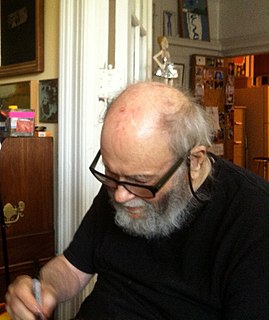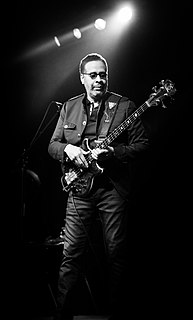A Quote by Federico Fellini
I don’t like the idea of “understanding” a film. I don’t believe that rational understanding is an essential element in the reception of any work of art. Either a film has something to say to you or it hasn’t. If you are moved by it, you don’t need it explained to you. If not, no explanation can make you moved by it.
Related Quotes
I would simply ask why so many critics, so many writers, so many philosophers take such satisfaction in professing that the experience of a work of art is ineffable, that it escapes by definition all rational understanding; why are they so eager to concede without a struggle the defeat of knowledge; and where does their irrepressible need to belittle rational understanding come from, this rage to affirm the irreducibility of the work of art, or, to use a more suitable word, its transcendence.
In my own version of the idea of 'what art wants,' the end and fulfillment of the history of art is the philosophical understanding of what art is, an understanding that is achieved in the way that understanding in each of our lives is achieved, namely, from the mistakes we make, the false paths we follow, the false images we have come to abandon until we learn wherein our limits consist, and then how to live within those limits.
When I start on a film I always have a number of ideas about my project. Then one of them begins to germinate, to sprout, and it is this, which I take and work with. My films come from my need to say a particular thing at a particular time. The beginning of any film for me is this need to express something. It is to make it nurture and grow that I write my script- it is directing it that makes my tree blossom and bear fruit.
I have songs that define characters from each film of mine. It can be a song from that particular film or something that just goes with the wavelength of the film; you listen to it, and it gives you that rhythm. I can't articulate how it helps, but it somehow gives you an understanding of the character.
There is something that might be called cinematic beauty. It can only be expressed in a film, and it must be present for that film to be a moving work. When it is very well expressed, one experiences a particularly deep emotion while watching that film. I believe that it is this quality that draws people to come and see a film, and that it is the hope of attaining this quality that inspires the filmmaker to make his film in the first place.
The secret to freedom from enslaving patterns of sin is worship. You need worship. You need great worship. You need weeping worship. You need glorious worship. You need to sense God’s greatness and to be moved it — moved to tears and moved to laughter — moved by who God is and what he has done for you.
I like to act in films, I like to shoot 'em, I like to direct 'em, I like to be around 'em. I like the feel of it and it's something I respect. It doesn't make any difference whether it's a crappy film or a good film. Anyone who can make a film, I already love. But I feel sorry if they don't put any thought in it because then they missed the boat.
Regarding this Dhamma, it is not something that we can simply talk about or take another's word for it. We need to develop meditation so that the understanding arises clearly within oneself. It is not the case that merely by listening to another's explanation our defilements will disappear. When we gain some understanding we need to chew on it again so that we see it for ourselves with certainty: paccattam.





































